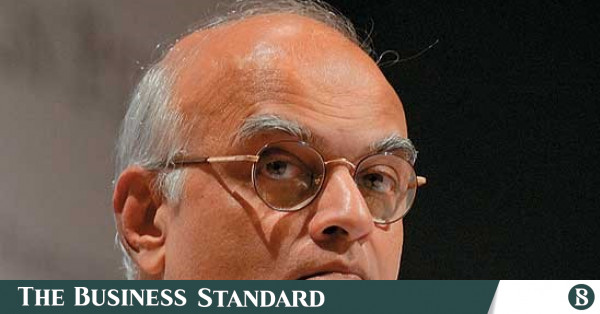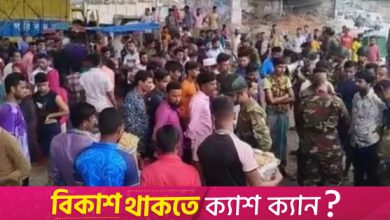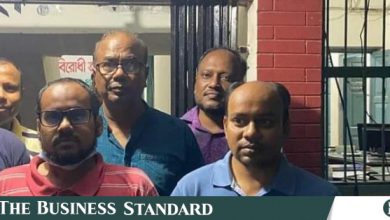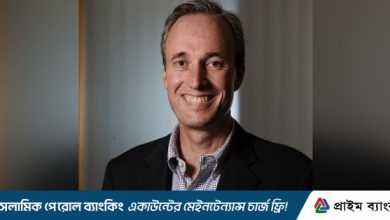It was a revolution in Bangladesh, and we should recognise it as such: Shivshankar Menon


During a recent show on The Wire, former Indian National Security Adviser Shivshankar Menon gave a thoughtful and nuanced view on what is happening in Bangladesh
A collected photo of Shivshankar Menon, former National Security Adviser of India under Prime Minister Manmohan Singh.
“>
A collected photo of Shivshankar Menon, former National Security Adviser of India under Prime Minister Manmohan Singh.
What happened in Bangladesh is a clear example of what occurs when a regime loses touch with its people, said Shivshankar Menon, former National Security Adviser of India under Prime Minister Manmohan Singh. Menon had previously served as the Foreign Secretary in the Ministry of External Affairs of India.
He noted that the revolution was partly driven by the uneven nature of Bangladesh’s accelerated growth, alongside rising inequality and a growing sense among young people that opportunities were slipping away.
Shivshankar Menon made this comment on a show on The Wire, noting that it was the young people and students who took to the streets to drive the revolution, which was then utilised by various political parties for their own purposes.
“Primarily, it was a people’s movement. It was a revolution on the streets, and we should recognise it as such rather than looking for foreign influences or purely political explanations. This will take time to sort itself out; it’s a period of churn in Bangladesh. The country has changed tremendously. A whole new generation now exists who don’t remember the past and aren’t carrying that baggage, but they have their own issues to address. They need to work through these challenges among themselves,” Shivshankar said.
Despite economic and social development, Shivshankar Menon remarked that such upheavals occur because they represent a renegotiation of both the political and social contracts in a society undergoing significant change. The people’s movement emerged from this dynamic, reflecting the fact that Bangladesh is now a predominantly young society. It is important to understand these developments in this context. He added that, like Bangladesh, Indian society is also relatively young and has experienced rapid change, with growing inequality as a notable consequence.
“And this is not just a Bangladeshi or Indian issue. Across South Asia as a whole, there have been numerous government changes in the last eight years, not all of them smooth, voluntary, or constitutional. For example, Sri Lanka, Nepal, Pakistan, the Maldives, and Afghanistan have all experienced regime changes. As Adam Tooze describes it, South Asia is surrounded by what he calls a “polycrisis”—a convergence of economic, social, and political crises occurring simultaneously.
So, it is not going to be an easy time from an Indian point of view, he noted.
In South Asia, borders are porous, ethnicities cross national lines, and newly drawn borders often fail to reflect the reality on the ground, dividing communities. From the Mizo to the Chin, and beyond, the region is marked by such complexities. Therefore, it’s essential to view these issues as a consolidated regional problem. It’s not something India, or any individual country, can address in isolation. Collaborative efforts with neighboring countries are necessary to effectively tackle these interconnected challenges.
In response to show host Kapil Sibal’s comment that, if you don’t allow people the democratic rights they are entitled to, their voice in a global world today, you are going to have this result, Shivshankar said, “For me, Bangladesh isn’t Pakistan. Many people in India make the mistake of equating them because Bangladesh was once East Pakistan, but that is precisely why the events of 1971 occurred—because they are distinct. Bangladesh is characterised by three key political distinctions.”
“One key aspect of Bangladesh is its Bengali identity, which serves as a defense against extremism. Another is its vibrant civil society and mass-based political parties, and the third is its democratic institutions. However, in the last decade, the latter two elements have been gradually eroded, leading to a loss of faith in these institutions. Currently, no politician in Bangladesh holds much credibility, leaving only the identity as a unifying factor. Economic progress alone cannot compensate for this loss, as humans are not only economic and social beings but also political ones. This, I believe, is where the churn has occurred,” Shivshankar said.




